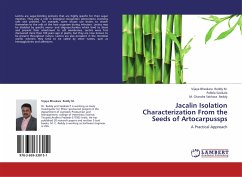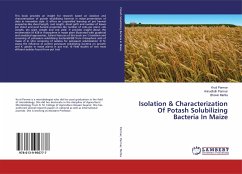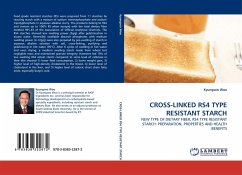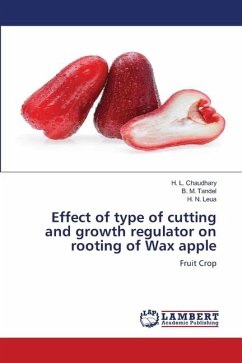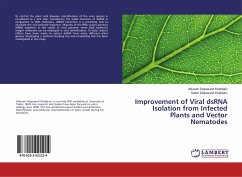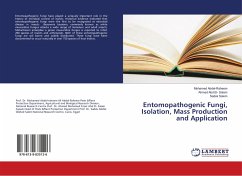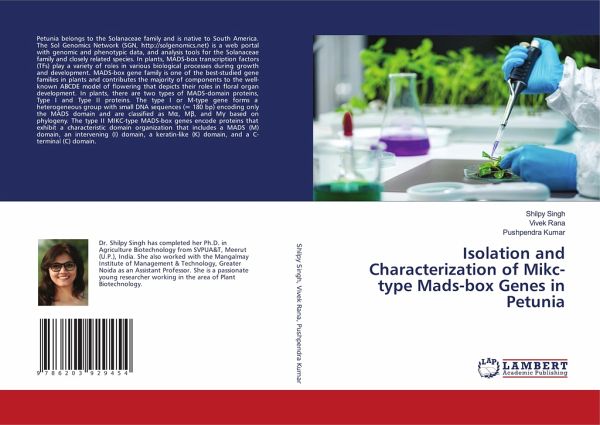
Isolation and Characterization of Mikc-type Mads-box Genes in Petunia
Versandkostenfrei!
Versandfertig in 1-2 Wochen
50,99 €
inkl. MwSt.

PAYBACK Punkte
25 °P sammeln!
Petunia belongs to the Solanaceae family and is native to South America. The Sol Genomics Network (SGN, http://solgenomics.net) is a web portal with genomic and phenotypic data, and analysis tools for the Solanaceae family and closely related species. In plants, MADS-box transcription factors (TFs) play a variety of roles in various biological processes during growth and development. MADS-box gene family is one of the best-studied gene families in plants and contributes the majority of components to the well-known ABCDE model of flowering that depicts their roles in floral organ development. I...
Petunia belongs to the Solanaceae family and is native to South America. The Sol Genomics Network (SGN, http://solgenomics.net) is a web portal with genomic and phenotypic data, and analysis tools for the Solanaceae family and closely related species. In plants, MADS-box transcription factors (TFs) play a variety of roles in various biological processes during growth and development. MADS-box gene family is one of the best-studied gene families in plants and contributes the majority of components to the well-known ABCDE model of flowering that depicts their roles in floral organ development. In plants, there are two types of MADS-domain proteins, Type I and Type II proteins. The type I or M-type gene forms a heterogeneous group with small DNA sequences (= 180 bp) encoding only the MADS domain and are classified as M , Mbeta, and MGamma based on phylogeny. The type II MIKC-type MADS-box genes encode proteins that exhibit a characteristic domain organization that includes a MADS (M) domain, an intervening (I) domain, a keratin-like (K) domain, and a C-terminal (C) domain.



